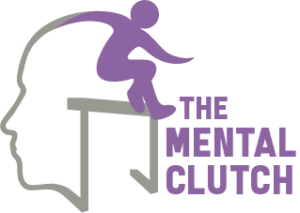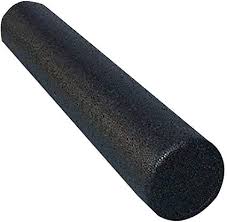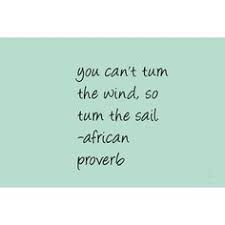The other day I noticed my first stretch mark.
It came out of nowhere.
I stepped out of the shower and there it was, staring back at me in the mirror.

My first reaction was denial, “That’s just part of my linea nigra,” I thought.
But it didn’t make sense that it would veer off to the right around my outstretched belly button and grow wider in width.
At the time I’m writing this I am less than two weeks out from my estimated due date. I really thought since I was so close to my due date that I dodged the pregnancy stretch mark bullet, but I was wrong.
At first, I contacted my two sisters to let them know about this new discovery of mine.
Here were their responses:
My younger sister, “Really?!?!?! That’s exciting!!”
Exciting? Not the word I would have used to describe the finding… but then she made a good point, “It’s part of pregnancy though,” she reminded me.
Then my older sister’s response really hit home, “Think about how many women would love to have a stretch mark from pregnancy.”
Wow. So true.
There are many women who have not been able to experience pregnancy that wish they could and would love to have a stretch mark from being able to experience carrying and birthing a baby.
This really got me thinking that many of the things that we may be complaining about or dislike about our bodies are the same characteristics or aspects that another person dreams about having.
Now I wasn’t making a huge deal about the stretch mark, I was just hoping to not have to have them. It’s part of pregnancy though like my sister said. When you really think about it – it’s amazing when women go through pregnancy without having a stretch mark when you consider how much the skin stretches throughout the process. I mean you’re body is adapting to grow another human!
This moment made me check my mindset regarding my body throughout my pregnancy journey. Whether you are pregnant, trying to lose weight, trying to bulk up, or stick to a workout regimen learning to love and accept our bodies is HARD.
We live in a society where we are constantly told we aren’t good enough, skinny enough, good looking enough, and that we need/should look a certain way or fit into a certain size to fit society’s “norm.” If you scroll through social media it’s easy to focus on all of the celebrities and models posting their half-naked perfect bodies everywhere – it’s a challenge to not compare ourselves!
Although it may be easy to fall into this comparison trap, we don’t have to accept this. We can choose to make a commitment to love ourselves and our bodies despite what society and social media are telling us or showing us.
I’ve been using these exercises and strategies throughout my pregnancy because there are A LOT of changes happening with my body and I know that after this babe is born my body will not be how it was pre-baby. They have helped me and I hope they also help you along your journey to self-acceptance.
Here are the 5 strategies I used to change my mindset to love, honor, and accept my changing body.
1) Reframe your self-talk.
We are often our own worst critic. The self-talk that we use towards ourselves and our own bodies are things we would NEVER say to someone else. Learn to be your own best friend by being aware of what you are saying inside your own head. If what is being said is harmful and detrimental to yourself and your path along accepting your body then change it and reframe it to be helpful instead.
For example:
If you find yourself looking in the mirror and think, “My thighs are huge.”
Recognize that this is hurtful to accepting yourself and change it to something more effective such as, “My thighs are strong and powerful.”
This simple reframing technique changes your perception of what you are seeing in the mirror.
Try it out for yourself with a common hurtful phrase you say to yourself in the mirror. How can you change that statement and reframe it to benefit you? Notice the difference in how it makes you feel after you say it.
2) Be grateful for what your body does.
We easily criticize ourselves and our bodies for what we see or would like to see in the mirror. Instead, focus on what your body DOES for you and to be grateful for that instead of tearing it down.

To start, print off a photo of a silhouette, like the one shown on the left, and spend time focusing on each body part.
What are you grateful for regrading each body part? Spend time really considering what each body part actually does for you and what you appreciate about it instead of criticizing it.
This activity was brought to my attention by a former co-worker of mine named Brittany. She has a variety of awesome body-positive activities.
3) Do what feels good for you.
We are constantly bombarded with headlines and social media with certain workouts to try or exercise regimens to follow. However, what works for one person does not work for another.
Instead of doing what you think you “should” do, be in-tune with your body and do what feels good it. There are many different varieties and types of exercises so try them out and find what works best for you. Instead of signing up for a membership to that gym or that class that you feel like you should do, find what exercises and activities actually bring you joy and make you feel less like you’re working out, but more like you’re having fun! Your body is a powerful vessel, so use that to your advantage instead of torturing it by doing something you dread.
It doesn’t matter what the exercise is – it could be kickboxing, yoga, Zumba, water aerobics, CrossFit, running, or group training exercises. As long as you are enjoying what you are doing and it feels good to you mentally, emotionally, and physically stick with it. If you enjoy the exercise that you are doing, you will be more motivated to stick to it!
If you are able to change your mindset and workout to feel good about yourself, rather than to decrease the number on the scale or to fit into a certain size, you will notice that you are more motivated to work out and it will become more of a habit rather than feel like a chore.
One thing I really noticed throughout my pregnancy is that working out benefits me on many other levels. While pregnant my goal while working out is definitely not to decrease the number on the scale. I’ve worked out every day just about throughout my pregnancy journey and as I decrease my intensity, increase modifications, and see my weight go up each week at my doctor’s appointment, I still am able to feel good about myself after each workout because I’m doing it for myself – not to reach a certain number in weight, size in clothes, or for other people.
4) Use food as fuel.
Similar to finding a workout regimen that works for you and feels good for you, food should be used as a way to fuel your body in a way that feels good to you instead of something to restrict yourself from. There’s so much research out there that shows that “fad diets” are not sustainable. You may see some short-term changes, but they will not last long-term.
Many people become frustrated after committing to a diet and seeing results to only have them become reversed soon afterward. I know for myself if I avoid certain foods or tell myself that certain foods are “not allowed,” I want them even more. The cravings intensify and I may end up indulging in these foods at an even greater rate than I would if I simply allowed myself to enjoy it in the first place.
Moderation is the keyword in food consumption here. Instead of counting calories – focus on the amount of food you’re eating instead. Let your portions do the talking instead of the calorie labels. Besides, we are humans who are designed to consume food, not just calories.

Tempted to eat that cheesecake at the potluck? Do it. You can allow yourself a piece instead of avoiding it like the plague and being tempted to consume the entire cake later on. Just remember to eat what feels good for you and your body and use it to correctly fuel your body like gasoline in a car. Your body is your vessel so nourish it properly.
Food is not the enemy, it’s our perception about food and our relationship with it that’s harmful.
5) Talk to others for support.
We often may feel alone about our body insecurities. We are alike more than we are different though! Everyone experiences negative self-talk and body image issues. The difference is that some people have been able to work through this and have learned to love themselves and their bodies. They have built strategies to ignore that negative voice in their heads and tell themselves more positive messages.
Instead of feeling like we have to endure our negative self-talk and negative body image by ourselves we should open up and talk about it. This will not only help you but also help others to realize that they are not the only ones either!
Most of the time the people we think “have it all together,” with no problems are the ones who may be struggling the most. Honesty is the best policy and connecting with others for support is the best way to overcome our challenges. We can connect with others by showing our vulnerability and being open and honest about our struggles. There’s strength in numbers.
Again the 5 strategies/exercises to overcome our negative self-talk about our bodies and learn to accept and embrace ourselves are:
- Reframe your self-talk
- Be grateful for what your body does
- Do what feels good for you
- Use food as fuel
- Talk to others for support
I hope you can take away one tip to use on your journey towards self-acceptance because we only get one body in this life so let’s treat it with the love and respect it deserves.


















